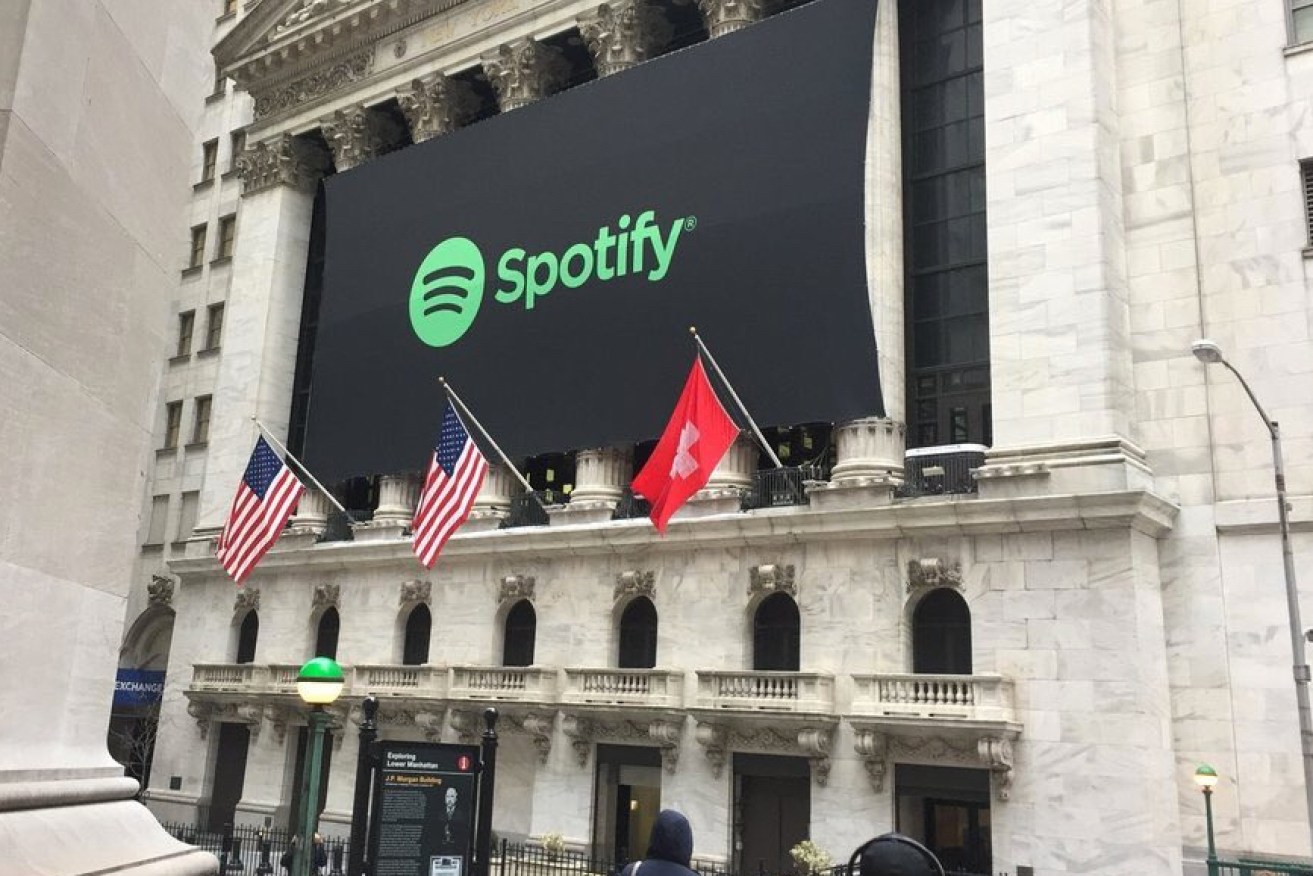Spotify was welcomed on Wall Street with a Swiss flag. It’s Swedish

Wall Street welcomes the Swedish outfit's debut with a Swiss flag. Photo: Twitter
Spotify made its debut on Wall Street overnight. But not everything went according to plan.
In an attempt at goodwill, the New York Stock Exchange welcomed the Swedish-based company by flying a Swiss flag at the entrance.
And of course, online users were quick to jump on the mix-up:
https://twitter.com/ChrChristensen/status/981186522958454784
When the @NYSE accidentally raised the Swiss flag right before @Spotify’s IPO. 🇨🇭 🇸🇪 Poke @swedense #Swedenland https://t.co/mx8mlfSSzF
— About Switzerland (@AbtSwitzerland) April 3, 2018
This is pretty funny. https://t.co/pYfhUmCbwa
— Sweden (@Sweden) April 3, 2018
Spotify’s Wall Street debut was unconventional
It’s using a “direct listing” on the New York Stock Exchange that will allow the company’s early investors and employees to sell as many shares as they want, whenever they want.
That’s a departure from a traditional initial public offering (IPO), in which a company and a few select investors first sell a limited amount of stock at a starting price determined by investment bankers, who spend weeks gauging investor demand.
And that could result in wild swings in Spotify’s stock price during the first few days of trading, especially since Spotify’s shares sold in a range of $US48.93 ($63.27) to $US132.50 ($172.40) in privately negotiated transactions during the first 11 weeks of this year.
It’s still not profitable and has some fierce competitors
Yep, it has lost more than 2.4 billion euros ($3.8 billion) since it started more than a decade ago.
Spotify has also made it clear that it intends to remain focused on adding more subscribers instead of making money for now.
The company currently has 71 million worldwide subscribers and hopes to increase that to 96 million subscribers by the end of the year. By comparison, Apple’s nearly three-year-old music streaming service has 38 million subscribers.
The company also has a list of formidable competitors, including Google and Amazon, who offer similar music-streaming services.
Some analysts have flagged the possibility that it could be wiped out by its rivals.
And it’s not exactly the best time to be a ‘tech’ outfit on Wall Street, with companies coming under pressure over the last few weeks.
It’s already been compared to Netflix
Investors have noted how both companies blend technology with a subscription model.
The comparison is a pretty big compliment, considering how successful Netflix has been in its field. It was a pioneer which started out in DVD-by-mail rentals and then moved to video streaming to create a hugely successful, subscription-driven franchise.
Also Spotify’s current chief financial officer, Barry McCarthy, held the same job when Netflix went public and remained in that position until leaving the video service in 2010.
But there’s also some pretty big differences.
Netflix has also set itself apart from its rivals in video streaming by spending billions on original programming (think Stranger Things and The Crown).
Analysts are worried that will be more difficult for Spotify to do because it is basically negotiating for the same music streaming rights as Apple, Google and Amazon — companies that can afford to pay even more, if they want.
“One of the big questions about Spotify is whether they can take it to the next level like Netflix has,” Synovus Trust senior portfolio manager Daniel Morgan said.
But RBC Capital Markets analyst Mark Mahaney reckons: “The similarities here, we believe, are much greater than the differences”.
And why does that matter? Well, a $10,000 investment in Netflix’s 2002 initial public stock offering would now be worth more than $2.6 million.
It’s left some investors wondering if Spotify might be on a similar trajectory in music streaming.
-with wires








